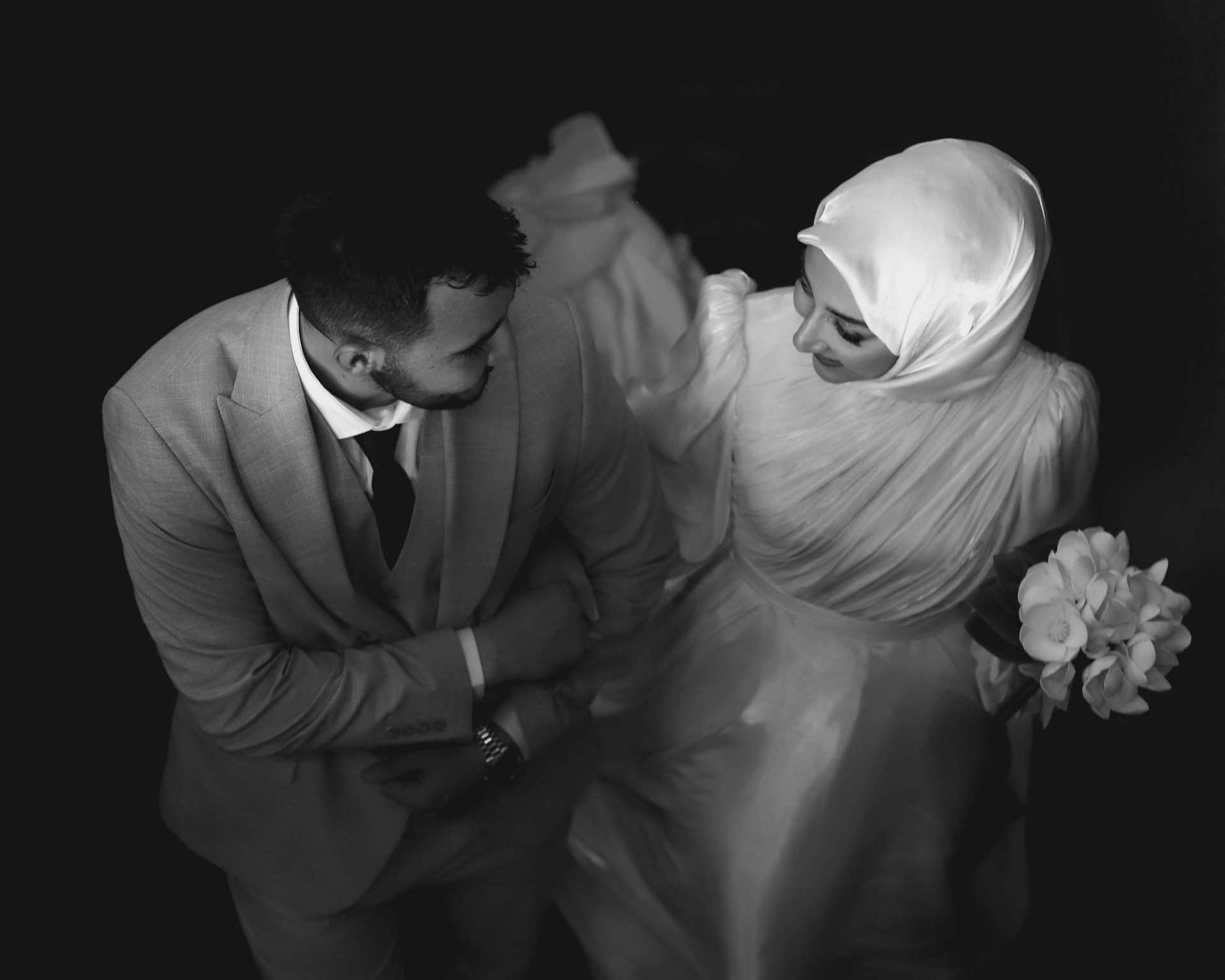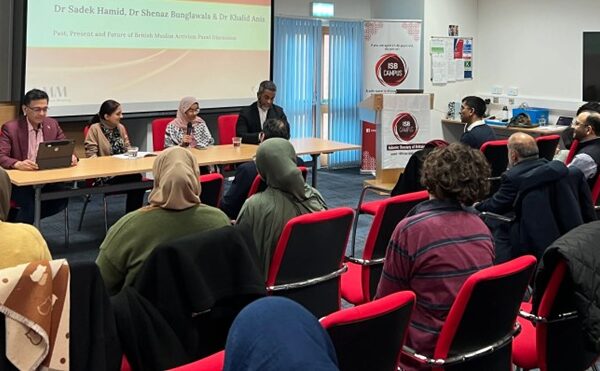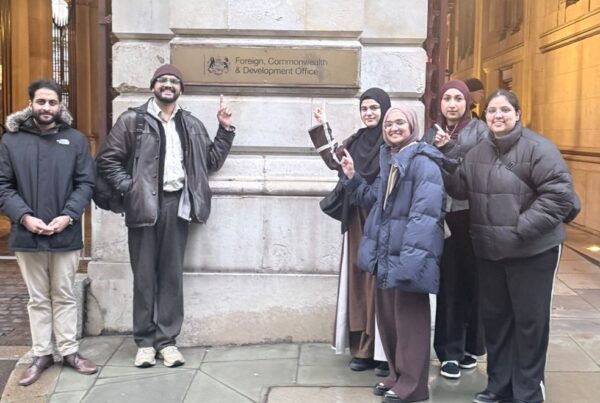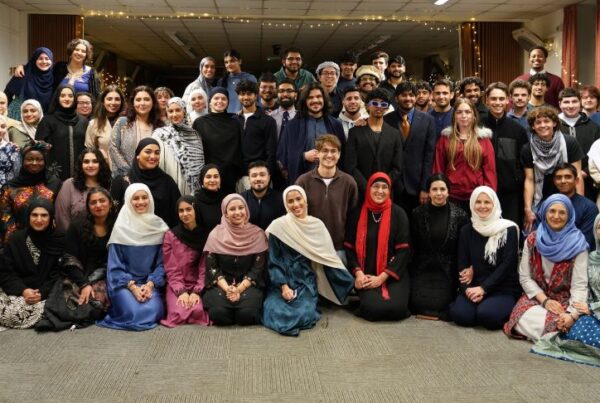The Beauty of Marriage
By AYAH Magazine
There are many terms for love in Arabic; one of which is ‘hub.’ Hub has the same root as ‘hab’ which means ‘seed.’ The metaphor would allude to germination and growth into something that has beauty and integral value.
One day, A’isha RA asked how Muhammad (saw) would describe his love for her and he replied, ‘Like a strong binding knot.’ Normally, the more a knot is tugged, the stronger it becomes. Later A’isha RA would ask him playfully ‘How is the knot?’ ‘As strong as the first day (you asked) he replied.’ One gets an idea from this of the intensity of love and affection between God’s Messenger and his wife and the playful, light conversations that would sometimes pass between them.
In the well known first verse of Surah 4, Allah says: “O Mankind, Be conscious of your Sustainer, who has created you out of one living entity, and out of it created its mate, and out of the two spread abroad a multitude of men and women. And remain conscious of Allah, in whose name you demand (your rights) from one another, and of those ties of kinship…”
Interestingly, ‘ties of kinship’ are referenced as ‘ties of the womb’ and reverence to them is mentioned as second only to revering our Creator. Some scholars touch on the dignity, nobility and honour afforded to the procreative capacity of women through this tender and beautiful reference to the womb.
On the topic of marriage, Allah says in Surah 51 verse 49: “And of everything We have created pairs, that you may remember.” The Oneness of God contrasts with His often dual and contrasting nature of creation; whether it be night and day, the sun and moon or indeed the male and the female. It is in the coming together of the pair, the male and the female, where new life and possibilities begin.
This next iconic Quranic verse, often printed on wedding cards, qualifies 3 of the ethical principles of marriage:
“And of His signs is that He created for you from yourselves mates that you may find tranquillity in them; and He placed between you affection and mercy. Indeed in that are signs for a people who give thought.”
Indeed Quranic verses would suggest many such principles that we would do well to institute within our relationships and homes. These include:
- Adl – Justice
- Qist– Fairness
- Ma’ruf – Goodness
- Ihsan – Kindness, beauty
- ‘Afw – Magnanimity
- Taqwa – God consciousness
- Muwaddah – Love
- Rahma – Mercy
- Fadl – Graciousness
- Birr – Righteousness
Mutual consultation is also mentioned as a principle in Surah 2:233 whilst referring to the joint decision to wean a child … “And if they both desire weaning through mutual consent from both of them and consultation, there is no blame upon either of them.”
These ethical principles set the stage for Muslim marriages as formidable institutions of love and mercy; with homes in which we feel tranquil, rested and at ease. This would be a far cry from homes where we may feel intimidated, insecure and would rather flee from instead of to.
The Stages of Marriage
What should we expect the course of marriage to look like? Most marriages grow and change and go through stages.
Stage 1
Romantic love: This is a stage characterised by strong feelings of love and togetherness. It can last a few years and is marked my a significant sense of ‘we’ as opposed to ‘I.’ Rational thought may be affected in this stage as surges of neurochemicals such as oxytocin and endorphins are released in the brain. Here we show only our best side and see no wrong in our partner.
Stage 2
Disillusionment: Here differences can become sources of irritation. Why are you not more like me? Why are you not living up to the ideal expectation I had in Stage 1? The ‘we’ become the ‘I’ with power struggles surfacing and boundaries being drawn . This stage can lead be confusing and couples may drift apart and separate. Equally, greater understanding can be built by working through differences and disillusionment.
Stage 3
Acceptance: In this stage, through hard work, a new equilibrium can be reached. We realise that we have married individuals who have varying reasons for why they are who they are; they have vices and virtues. A deep friendship and trust develops and there may well be a yearning for the romance of stage 1! This stage involves understanding oneself, the spouse and putting effort into listening and problem solving.
Stage 4
Stability: In this stage, the hard work of the preceding stages leads to a greater understanding of individual identities and mutual love and understanding. You may well enjoy your own individual interests. The sharing of life goals and values cements the relationship and you enjoy a deep love that has grown from the effort of the preceding stages.
What may be some of the red flags that we would advise youngsters on the cusp of marriage to look out for? Shaikh Akram Nadwi has written on one such topic: that of secret marriages. His article “On secret marriages” remarks that a nikah is an open declaration and proclamation of marriage that binds together two individuals and consequently two families. In contrast, secret marriages are a form of exploitation and abuse. In fact, he goes so far as to state that secret marriages are ‘one of several kinds of violation by men of the rights and dignity of women.’
Another threat to the ‘sukun’ and peace of the home would be that of abusive behaviour which can manifest openly as assaults and threats and also subtly as humiliation and any behaviour that frightens the victim; isolating them from family and friends and depriving them of their independence. In fact coercive control is a criminal offence. Compare this to the words and actions of our beloved Messenger AS:
“The best of you is the best to his wives, and I am the best of you to my wives”
Tirmidhi
May Allah bless us with homes built upon the principles of nurturing tranquillity through muwaddah/love and rahma/mercy




